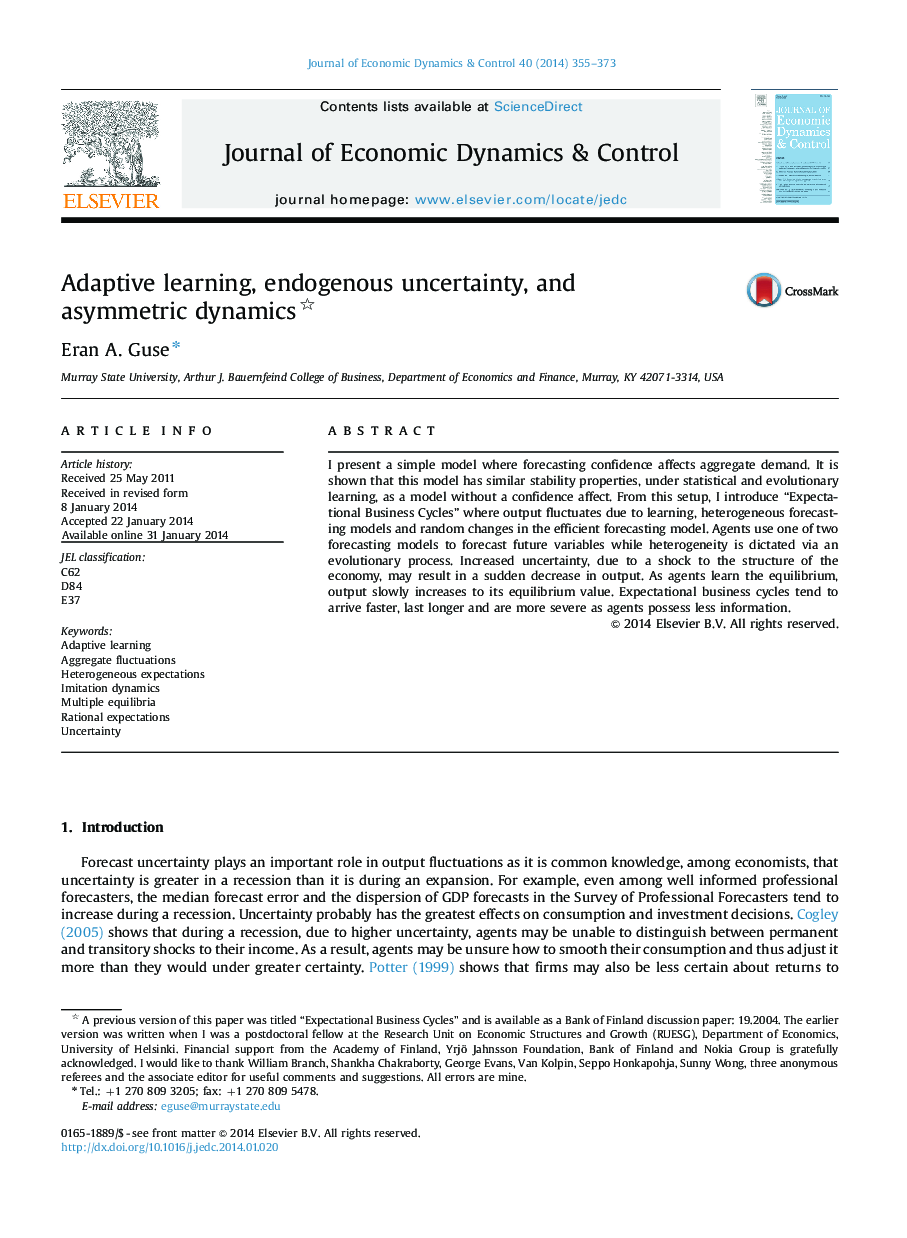| Article ID | Journal | Published Year | Pages | File Type |
|---|---|---|---|---|
| 5098565 | Journal of Economic Dynamics and Control | 2014 | 19 Pages |
I present a simple model where forecasting confidence affects aggregate demand. It is shown that this model has similar stability properties, under statistical and evolutionary learning, as a model without a confidence affect. From this setup, I introduce “Expectational Business Cycles” where output fluctuates due to learning, heterogeneous forecasting models and random changes in the efficient forecasting model. Agents use one of two forecasting models to forecast future variables while heterogeneity is dictated via an evolutionary process. Increased uncertainty, due to a shock to the structure of the economy, may result in a sudden decrease in output. As agents learn the equilibrium, output slowly increases to its equilibrium value. Expectational business cycles tend to arrive faster, last longer and are more severe as agents possess less information.
